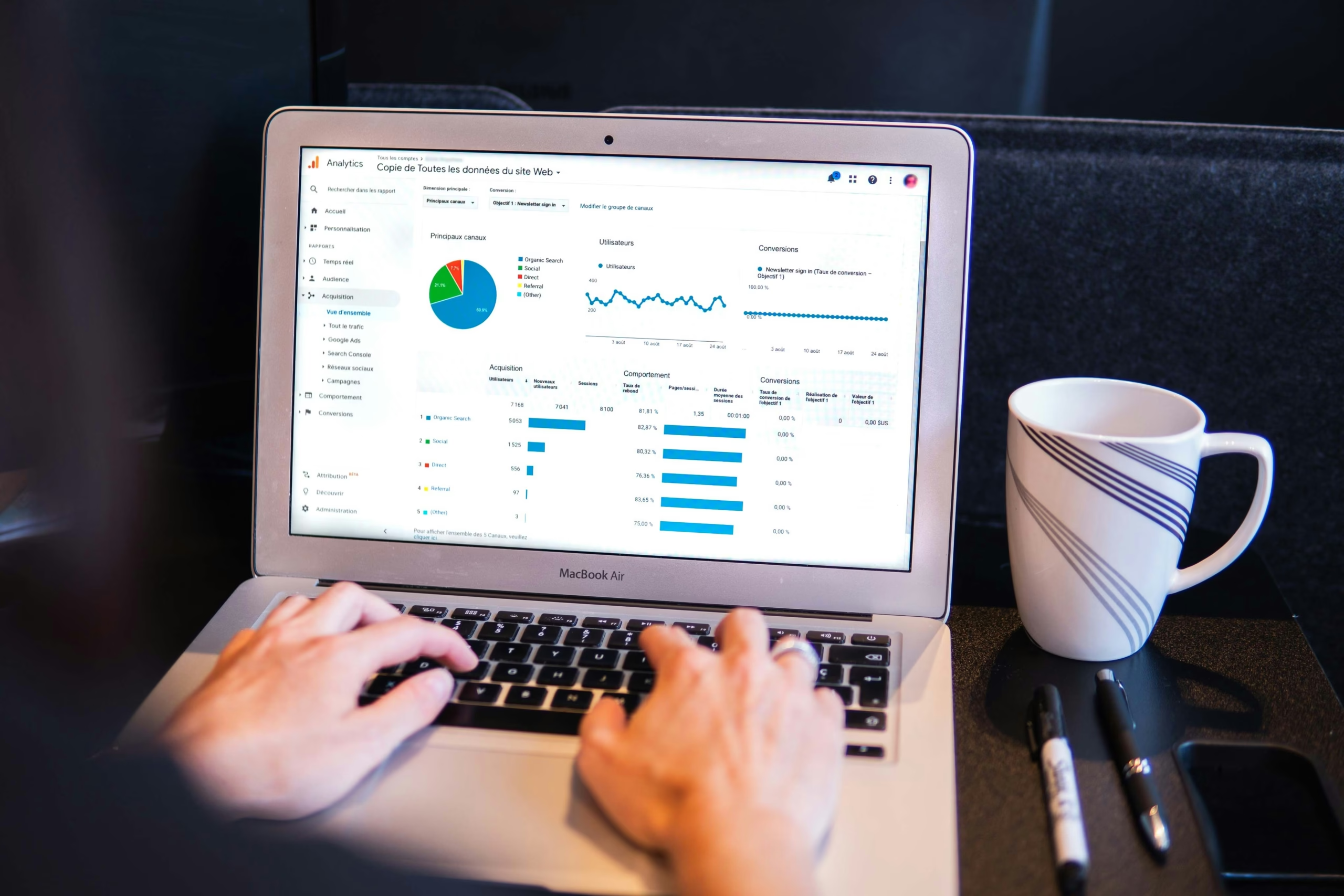
Introduction to ESG Reporting
In recent years, the significance of Environmental, Social, and Governance (ESG) reporting has surged within the corporate world. Organizations are increasingly recognizing that their operational practices impact not only their financial performance but also their societal and environmental footprints. As stakeholders become more discerning about the sustainability practices of businesses, ESG reporting has emerged as a crucial tool for transparency and accountability.
ESG reporting serves multiple purposes: it provides insights into how companies govern themselves, address environmental challenges, and engage with communities. Investors, regulators, and consumers are progressively demanding comprehensive and accurate information regarding sustainability initiatives. The heightened emphasis on ESG factors is fundamentally reshaping investment strategies, influencing capital allocation, and enhancing corporate reputations. Additionally, regulatory bodies worldwide are enacting stricter regulations that compel organizations to disclose their ESG performance, further cementing its importance.
Furthermore, the role of ESG reporting extends beyond compliance; it empowers businesses to better understand their risks and opportunities. Companies that proactively engage in ESG practices are often viewed more favorably, leading to improved investor relations and consumer trust. In this context, integrating dedicated software solutions can streamline the ESG reporting process, providing organizations with the tools to collect, analyze, and report essential data efficiently.
As the push for responsible business practices continues to gain momentum, the need for effective ESG reporting will remain paramount. The role of advanced software solutions in this realm cannot be understated, as they not only simplify the reporting process but also ensure accuracy and comprehensiveness. By addressing the evolving landscape of ESG requirements, businesses can position themselves for success while contributing positively to society and the environment.
Current Challenges in ESG Reporting
As organizations shift towards a more sustainable future, the intricacies of Environmental, Social, and Governance (ESG) reporting present significant challenges. With the growing emphasis on accountability, companies are faced with multiple hurdles in their journey to meet ESG standards effectively. One of the predominant obstacles is data collection and validation. A myriad of sources contribute to ESG data, including internal records, third-party reports, and external audits. The fusion of data from these diverse origins often leads to inconsistencies and inaccuracies, which complicates the validation process required for credible reporting. Organizations may find themselves investing excessive resources in verifying the data collected, which can detract from other essential operations.
Another complicating factor lies in the ever-evolving landscape of reporting standards. Organizations are frequently confronted with multiple frameworks, such as the Global Reporting Initiative (GRI) and the Sustainability Accounting Standards Board (SASB). Differing requirements across these frameworks can confuse stakeholders and companies alike, leading to misalignment of reported information and reduced comparability. Furthermore, the complexity inherent in these standards necessitates specialized knowledge, which may not be readily available in-house, forcing companies to seek external assistance often at a significant cost.
The time-consuming processes associated with ESG reporting further intensify these challenges. The meticulous nature of compiling and analyzing data, along with the need for stakeholder engagement, can stretch timelines considerably, leading to delays in reporting and disclosures. Transparency is another critical element of ESG reporting, as stakeholders demand not only accuracy but also clarity in the reported figures. However, achieving this level of transparency requires robust systems that few organizations currently possess, resulting in reduced trust in the ESG information provided.
Introducing Infotyke: A Game Changer in ESG Reporting
In the evolving landscape of sustainable practices and corporate responsibility, Infotyke emerges as an innovative platform specifically designed to streamline Environmental, Social, and Governance (ESG) reporting. As businesses face increasing pressure from regulatory bodies, investors, and consumers to demonstrate their commitment to sustainable practices, Infotyke positions itself as a pivotal tool in this mission. The primary objective of this software is to simplify the complex and often cumbersome processes associated with ESG reporting, enabling organizations to present their sustainability efforts transparently and efficiently.
Infotyke’s mission centers around driving accountability and fostering trust between organizations and their stakeholders. The platform is equipped with a suite of innovative features that enhance data collection, analytics, and reporting capabilities. By utilizing robust algorithms and user-friendly interfaces, Infotyke allows businesses to gather and analyze ESG data in real time, enabling more informed decision-making. This functionality not only highlights a company’s commitment to environmental stewardship but also showcases its social and governance efforts, further enhancing corporate reputation.
What distinguishes Infotyke from traditional reporting methods is its emphasis on automation and integration. Rather than relying on outdated manual processes that are prone to errors, Infotyke leverages cutting-edge technology to automate data collection and reporting workflows. This not only reduces the time required to produce comprehensive ESG reports but also minimizes the risk of inaccuracies, a common issue with conventional approaches. By streamlining these processes, Infotyke empowers organizations to focus on their sustainability goals rather than the burdens of reporting.
As the demand for efficient ESG reporting continues to rise, Infotyke stands out as a cornerstone solution in the realm of sustainability, setting a new standard for organizations committed to responsible practices. Through its advanced software, the platform revolutionizes how companies approach ESG reporting, making sustainability not just a goal, but an integral part of their operational framework.
Key Features of Infotyke for ESG Reporting
Infotyke distinguishes itself in the realm of ESG reporting through its comprehensive suite of features designed to enhance user experience and streamline reporting processes. One prominent aspect is its user-friendly interface, which allows users to navigate effortlessly through complex ESG data. This intuitive design caters to various stakeholders, ensuring that both seasoned professionals and newcomers can efficiently access and interpret crucial information without overwhelming complexity.
Automation capabilities further enhance the effectiveness of Infotyke. By automating data collection and report generation, organizations can significantly reduce the time and labor associated with ESG reporting. This not only increases efficiency but also minimizes the potential for human error, ensuring more accurate and reliable outcomes. Through these automation features, companies can focus on analyzing the insights derived from the data rather than merely gathering it.
Another essential feature is the software’s seamless integration with existing data systems. Infotyke is designed to connect with various data sources, consolidating information from different departments and external partners. This capacity for integration facilitates a holistic approach to ESG reporting, providing a comprehensive view that can inform strategic decisions. Furthermore, its real-time reporting functionality allows organizations to track their ESG metrics and performance continuously, aligning reporting with the dynamic nature of sustainability goals.
Compliance tracking is another key feature that Infotyke offers. The software assists organizations in maintaining adherence to ever-evolving regulatory requirements related to ESG reporting. By automatically updating compliance standards and guidelines within the platform, users can ensure that they stay ahead of legal obligations without excess effort.
Lastly, Infotyke’s analytics tools equip users with the ability to derive actionable insights from the reported data. By presenting ESG data in a visually engaging manner, users can more easily identify trends, areas for improvement, and performance benchmarks. This analytical capacity turns raw data into valuable information that is essential for informed decision-making in sustainability practices.
Benefits of Using Infotyke for Businesses
In the current landscape, businesses face an increasing pressure to maintain transparency and accountability regarding their environmental, social, and governance (ESG) practices. Infotyke emerges as a comprehensive software solution designed to streamline the ESG reporting process, offering numerous advantages to organizations that adopt it.
One of the standout benefits of using Infotyke is improved accuracy in ESG data collection and reporting. The software automates data aggregation from various sources, reducing the risk of human error and ensuring that stakeholders receive precise information. This not only boosts the credibility of the reports but also fosters trust among investors, customers, and regulatory bodies.
Additionally, Infotyke significantly reduces the time required for ESG reporting. Traditional reporting processes can be cumbersome and labor-intensive. However, the software condenses this effort through automated workflows and user-friendly interfaces, allowing businesses to finalize their reports in a fraction of the time that manual processes would demand. This efficiency enables companies to focus more on their core operations while still fulfilling their reporting obligations.
Furthermore, Infotyke enhances stakeholder engagement by providing real-time access to ESG data and insights. This transparency allows stakeholders to stay informed and participate in discussions surrounding the organization’s sustainability initiatives. Engaging stakeholders effectively leads to stronger relationships and can positively influence corporate reputation.
Another significant benefit is the support Infotyke provides in making informed business decisions. With comprehensive analytics and reports, companies can identify trends, assess risks, and uncover opportunities related to their ESG strategies. This data-driven approach can lead to better alignment with organizational goals and more effective resource allocation.
Lastly, the software helps businesses to meet regulatory requirements efficiently. As legislation surrounding ESG continues to evolve, Infotyke ensures that organizations are kept updated, allowing them to comply with current standards effortlessly. Through real-world applications, many companies leveraging Infotyke have reported tangible improvements in their ESG reporting processes, further underscoring the software’s value proposition.
User Experience and Testimonials
Organizations adopting the Infotyke platform for ESG reporting have shared a wealth of positive feedback regarding their user experience. Many users have highlighted the software’s intuitive interface that significantly simplifies the reporting process. One such user, a senior compliance officer at a multinational corporation, remarked, “The user-friendly design of Infotyke has made it incredibly easy for our teams to gather, analyze, and report on ESG data without the steep learning curve we anticipated.” This ease of use has empowered organizations to manage their environmental, social, and governance data more effectively.
Moreover, the effectiveness of Infotyke in data management has been a common point of praise. Businesses have noted how the platform streamlines data collection and reporting, alleviating the burden of tedious manual processes. A project manager at an investment firm stated, “With Infotyke, we can quickly consolidate ESG metrics from various departments, ensuring consistency and accuracy in our reports. It has transformed how we approach sustainability assessments.” Such aspects of the software contribute to a more efficient workflow, enabling organizations to focus on strategic decision-making based on reliable data.
Overall satisfaction with Infotyke is reflected in the testimonials from diverse organizations. Users have acknowledged the robust support and resources provided by the platform, making it more appealing for companies striving to meet ESG requirements. A sustainability officer from a nonprofit organization shared, “The support team at Infotyke went above and beyond to assist us during implementation, ensuring our transition was seamless. Their expertise and commitment have made us confident in our ESG reporting efforts.” Through these powerful endorsements, it is evident that Infotyke stands out as a leading solution for organizations keen on enhancing their ESG accountability and reporting capabilities.
Future Trends in ESG Reporting and Infotyke’s Role
The landscape of ESG reporting is undergoing significant transformation, driven by evolving regulations, heightened stakeholder expectations, and advancements in technology. As organizations worldwide strive to meet increasing demands for transparency and accountability, it is crucial to understand the key trends shaping the future of ESG reporting. One prominent trend is the tightening of regulatory frameworks surrounding ESG disclosures. Governments and regulatory bodies are implementing more stringent requirements to ensure that companies accurately report their environmental, social, and governance practices. This regulatory environment necessitates robust software solutions that can adapt to changing guidelines efficiently.
Furthermore, stakeholders, including investors, consumers, and employees, are demanding more detailed and reliable ESG data. As public awareness of sustainability issues rises, businesses must communicate their ESG performance transparently to build trust and maintain their reputations. The integration of stakeholder feedback into reporting strategies is becoming increasingly vital. Infotyke recognizes this shift and is committed to developing software that not only facilitates compliance but also enhances stakeholder engagement by providing intuitive ESG reporting tools.
Another significant trend is the adoption of advanced technologies such as artificial intelligence and machine learning in the ESG reporting process. These technologies streamline data collection, analysis, and reporting, allowing organizations to extract deeper insights and track their performance better. Infotyke is at the forefront of this technological advancement, ensuring that its software incorporates the latest innovations to simplify and enhance the ESG reporting process for users.
By anticipating these trends and understanding the evolving requirements of ESG reporting, Infotyke is poised to empower organizations with the tools they need to navigate the complexities of upcoming regulations and stakeholder expectations. This commitment to innovation and responsiveness will ensure that Infotyke remains a trusted partner in the realm of ESG reporting well into the future.
Implementing Infotyke: A Step-by-Step Guide
Implementing Infotyke for simplifying ESG reporting requires a structured approach to ensure successful integration into existing systems. The first step is to set clear objectives. Organizations should define what they aim to accomplish with ESG reporting, such as enhancing transparency, improving stakeholder communication, or aligning with regulatory requirements. Establishing these goals will help tailor the software’s functionalities to meet specific needs.
Next, it is essential to onboard staff effectively. Engage relevant stakeholders early in the process to foster a sense of ownership and encourage collaboration across departments. This includes inviting input from teams involved in data collection, analysis, and reporting. Their insights will provide a comprehensive view of current processes, thereby facilitating smoother implementation.
Training is a critical component of this transition. Employees must familiarize themselves with Infotyke’s platform to maximize its potential for ESG reporting. Organizing training sessions, either in-person or through webinars, ensures that all staff members understand how to use the software effectively, which in turn increases confidence and efficiency in utilizing the tool. Customized training sessions can be designed based on the employees’ roles, ensuring relevance and applicability of the information presented.
Integration with existing data systems is another crucial step. Infotyke should be connected seamlessly with current databases or ERP systems to streamline data collection and reporting. This connectivity ensures that relevant information is readily accessible, ultimately facilitating accurate ESG metrics. Collaborating with IT departments or external consultants may be necessary to facilitate this integration process.
Finally, establishing reporting timelines is essential to maintain organization and accountability. Key performance indicators should be set, and regular meetings scheduled to monitor progress towards ESG goals. Frequent adjustments may be necessary to adapt to evolving requirements and ensure continuous improvement in the reporting process.
Conclusion
In conclusion, the importance of Environmental, Social, and Governance (ESG) criteria in today’s business environment cannot be overstated. Organizations are increasingly recognizing the necessity of comprehensive ESG reporting to maintain transparency and accountability. Infotyke stands out as a robust software solution designed to streamline this process, making it easier for companies to meet regulatory requirements while also bolstering their commitment to sustainable practices.
By leveraging automated data collection methods and intuitive reporting features, Infotyke addresses common challenges faced by businesses in their ESG reporting journey. This software not only simplifies data integration but also enhances accuracy, enabling organizations to present a clear and compelling narrative of their sustainability efforts. The user-friendly interface ensures that companies of all sizes can benefit from advanced ESG reporting capabilities without excessive technical barriers.
The key points highlighted throughout this blog post emphasize how Infotyke’s innovative approach can significantly reduce the time and resources required for ESG compliance. Furthermore, the platform’s flexibility allows for customization to cater to specific industry needs, thus maximizing its relevance in various sectors.
We encourage readers to explore the potential of Infotyke in transforming their ESG reporting practices. Whether you are looking to schedule a demo, engage in a consultation, or sign up for the platform, taking this step could be instrumental in propelling your ESG initiatives forward. The tools and support offered by Infotyke can be your catalyst for achieving excellence in sustainability reporting, positioning your organization as a responsible and forward-thinking entity in today’s competitive landscape.








